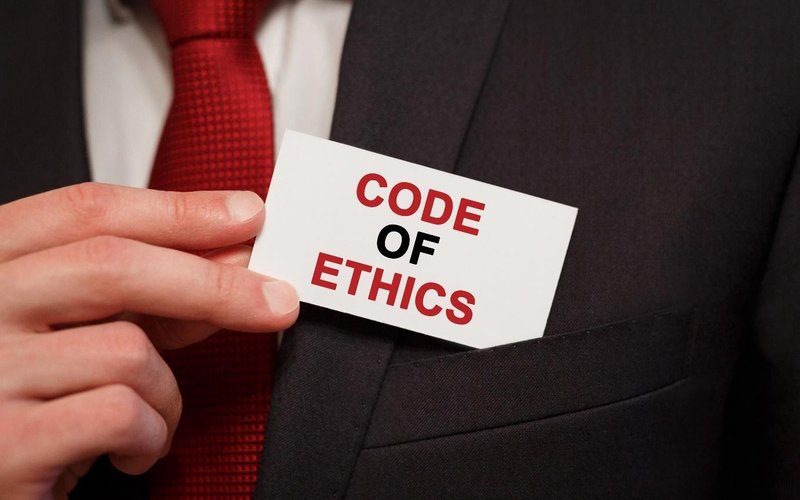
by John McCarthy Consulting Ltd. | Apr 24, 2023 | News
According to a recent Government press release, a consultation will soon commence on proposals to enhance the Companies Act 2014.
Among the issues to be considered are:
- Amend the audit exemption regime for small/micro companies, to remove automatic loss of audit exemption and put in place a two-step, graduated procedure to deal with late filing;
- Provide companies and industrial and provident societies with the option to hold physical/hybrid and virtual meetings including AGMs and general meetings;
- Make amendments to the regulation of receivers;
- Extend certain reporting obligations to examiners, interim examiners and process advisors;
- Enhance certain powers for the Corporate Enforcement Authority, the Irish Auditing and Accounting Supervisory Authority and the Companies Registration Office to help investigate and prosecute alleged breaches of company law.
Please go to our website to see our new ISQM TOOLKIT or if you prefer to chat through the different audit risks and potential appropriate responses presented by this new standard, please contact John McCarthy FCA by e-mail at john@jmcc.ie.
We typically tailor training and brainstorming sessions to suit your firm’s unique requirements.
Publications and AML webinars:
- The ISQM TOOLKIT 2022 is available to purchase here.
- See our latest Anti-Money Laundering Policies Controls & Procedures Manual (March 2022) – View the Table of Contents click here.
- Also we have an updated AML webinar (March 2022) available here, which accompanies the AML Manual. It explains the current legal AML reporting position for accountancy firms and includes a quiz. Upon completion, you receive a CPD Certificate of attendance in your inbox.
- To ensure your letters of engagement and similar templates are up to date visit our site here where immediate downloads are available in Word format. A bulk discount is available for orders of five or more items if bought together.

by John McCarthy Consulting Ltd. | Aug 29, 2020 | Blog, News
How is your AML Compliance?
In last week’s blog we wrote about the recent publication of the 2019 Annual Report of the Chartered Accountants Regulatory Board (CARB). The section on Money Laundering inspections will be of interest to readers.
Money Laundering Compliance Review – Every firm is required to perform an annual money laundering compliance review and document it, with findings for follow-up action. The review should involve a thorough examination of the firm’s AML procedures, including their application on client files, a review of the firm’s AML Policies & Procedures Manual and a review of AML training within the firm. Firms are also required to have prepared and documented a Firm Wide Business Risk Assessment.
During any subsequent Institute inspection the remedial action, identified in the firm’s review, will be expected to have been completed or substantially progressed.
AML Training – Firms must have procedures to monitor that all personnel involved in client work (not just client facing staff) receive up to date AML training.
Annual Return declarations – Firms must complete their annual returns every year. Often the AML section has errors. The Quality Assurance Committee of the Institute, to which the Professional Standard Department reports, takes incorrect declarations on the Annual Return very seriously and regulatory penalties can result where inaccuracies are identified during an inspection.
Our February 2020 up to date AML Policies & Procedures Manual is available on our site for immediate download in Word format and it contains everything you need to be up to date.
We also have several audit template letters that are up to date for GDPR and Coronavirus (COVID-19) downloadable for immediate tailoring in MS Word.
For a full list of all our webinar recordings, please go to our webinar site here. They may be viewed at any time for 12 months after the date of purchase.
We also have a complete set of letters of representation in our publications store, updated for Coronavirus (COVID-19), and letters of engagement for immediate download here.

by John McCarthy Consulting Ltd. | Feb 27, 2020 | Blog, News
We have just published an update to the AML Policies Controls & Procedures Manual last week, which is available to purchase now on our website. Our latest February 2020 edition includes the following updated items:
- Pronouncement by the FATF arising from their Public Consultation on FATF Draft Guidance on Digital Identity (discussed at the FATF plenary meeting in Paris from 19-21 February 2020)
- The latest developments on the RBO register since June 2019
- Further guidance on carrying out electronic searches and the validity of sourcing electronic data for client identity purposes.
This Manual contains everything you need to successfully implement the requirements of the Criminal Justice (Money Laundering and Terrorist Financing) Acts, 2010 to 2018 which became law on 26 November 2018 and the Register of Beneficial Ownership which came into effect on 22 June 2019.
This Manual comes with a, free of charge, Excel spreadsheet called the ‘AML Control Sheet’ which firms may use to give a ‘helicopter’ view of progress made with keeping client AML data up to date.
The Manual includes eleven Appendices with templates/guidance on how to implement the legislation efficiently. It retails for only €150+VAT and may be downloaded, ready to use, in Word format.

by John McCarthy Consulting Ltd. | Feb 8, 2020 | Blog, News
As we highlighted last week there is a newly revised and restructured Code of Ethics coming soon for accountants in Ireland, expected to be effective from the 1st of March 2020.
Sometimes accountants realise they have a conflict of interest due to lack of foresight or pre-planning. An example could be trying to sort out a dispute between two clients of the same accountant. The new Code seeks to address this with more guidance.
Conflicts of Interest
The sections on conflicts of interest in the new code have been completely replaced and split into two sections, 210 and 310, covering ‘business’ and ‘public practice’ respectively.
These sections have been revised and the guidance on ‘how to apply the conflicts of interest requirements’ has been enhanced.
The new section maintains the requirement for all parties to be notified of the conflict and obtain their explicit written consent, but also:
- Gives examples of the types of conflict of interest;
- Makes explicit reference to the ‘RITP’ test – the Reasonable and Informed Third Party test (which was only hinted at in the past). The definition of ‘RIPT’:
- The reasonable and informed third party is someone ‘who weighs all the relevant facts and circumstances that the accountant knows, or could reasonably be expected to know, at the time the conclusions are made. The reasonable and informed third party does not need to be an accountant, but would possess the relevant knowledge and experience to understand and evaluate the appropriateness of the accountant’s conclusions in an impartial manner.’ – (from 120.5 A4 in the proposed new Code of Ethics)
- Sections 210/310 also provide additional discussion of matters such as conflict identification processes, safeguards, types of disclosure and consent, and when work can be taken on without disclosure and consent.
A helpful flowchart to aid the decision-making process regarding conflicts of interest is available at this link (courtesy of the ICAEW helpsheet from December 2019).
Watch our website for the forthcoming webinar on the new rules.
See our latest additions to the website store which are the AML Business-Wide Risk Assessment Word template and a webinar on how to prepare it. Both of these help firms comply with the latest requirements of Section 30A of the Criminal Justice (Money Laundering and Terrorist Financing) Acts, 2010 to 2018, effective from 26 November 2018.
For other webinar topics including Investment Property Accounting, FRS 105, Common Errors in FRS 102 Accounting and the latest on FRS 105 and company law, visit our online webinar training website.

by John McCarthy Consulting Ltd. | Feb 4, 2020 | Blog, News
As we highlighted last week there is a newly revised and restructured Code of Ethics coming soon for accountants in Ireland, expected to be effective from the 1st of March 2020.
As readers might know, the Code of Ethics used by accountants across the British Isles is based on the code issued by the International Ethics Standards Board for Accountants – the IESBA code. The format and layout for the new Code of Ethics will look completely different from the previous version. The purpose of this change is to help with the understanding and application of ethical practice.
NOCLAR
The most significant change, however, is the inclusion of ‘NOCLAR’ (Non-Compliance with Law And Regulation), which provides further emphasis on whistleblowing in the ‘public interest’. The term ‘public interest’ is dealt with in 100.1 of the existing Code as follows:
‘Acting in the public interest involves having regard to the legitimate interests of clients, government, financial institutions, employers, employees, investors, the business and financial community and others who rely upon the objectivity and integrity of the accounting profession to support the propriety and orderly functioning of commerce.
This reliance imposes a public interest responsibility on the profession. Professional accountants* shall take into consideration the public interest and reasonable and informed public perception in deciding whether to accept or continue with an engagement or appointment, bearing in mind that the level of the public interest will be greater in larger entities and entities which are in the public eye.’
NOCLAR is dealt with in two brand-new sections 260 and 360, which cover members in ‘business’ and ‘public practice’, respectively.
The Code includes additional guidance material giving members specific permission to breach confidentiality where the accountant considers it to be in the public interest.
The inclusion of NOCLAR in the IESBA Code requires an accountant suspecting a business or client related illegal act to consider whether the act is inconsequential; and if not, they should raise it internally with the client or employer. If the accountant does not consider that the client or employer has dealt with the issue properly, the accountant should make disclosure to the relevant external authority, if it is in the public interest to do so.
The previous version of the Code of Ethics, however, already included specific detail to breach confidentiality in the public interest and so the NOCLAR provisions (new sections 260 and 360) can be seen as a change of detail rather than of substance.
Next week we will look at the second most important change in the Code’s structure, to do with conflicts of interest.
Please see our latest additions to the website store which are the template AML Business-Wide Risk Assessment template and a webinar on how to prepare it. Both of these help firms comply with the latest requirements of Section 30A of the Criminal Justice (Money Laundering and Terrorist Financing) Acts, 2010 to 2018.
For other webinar topics including Investment Property Accounting, FRS 105, Common Errors in FRS 102 Accounting and the latest on FRS 105 and company law, visit our online webinar training website.
Once the webinar viewing is completed, customers will automatically receive a CPD Certificate confirming their learning.










